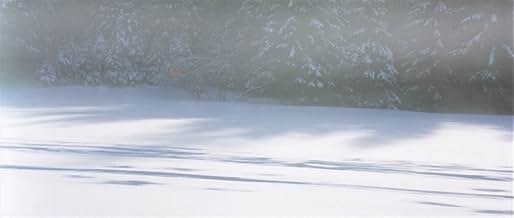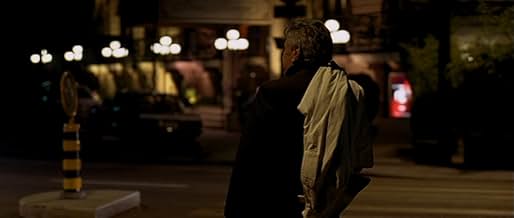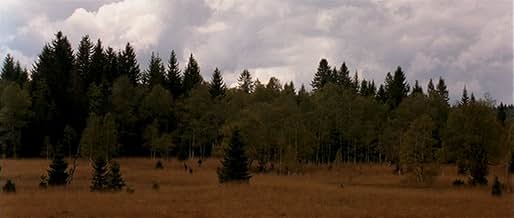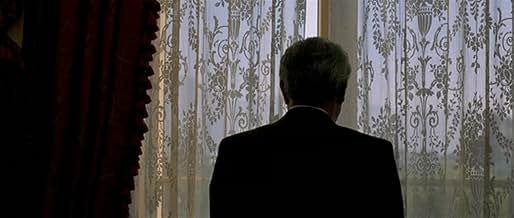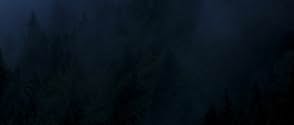L'intrus
- 2004
- Tous publics
- 2h 10min
NOTE IMDb
6,6/10
2,2 k
MA NOTE
Ajouter une intrigue dans votre langueAn emotionally cold man leaves the safety of his Alpine home to seek a heart transplant and an estranged son.An emotionally cold man leaves the safety of his Alpine home to seek a heart transplant and an estranged son.An emotionally cold man leaves the safety of his Alpine home to seek a heart transplant and an estranged son.
- Réalisation
- Scénario
- Casting principal
- Récompenses
- 4 nominations au total
Yekaterina Golubeva
- La jeune femme russe
- (as Katia Golubeva)
Florence Loiret Caille
- Antoinette
- (as Florence Loiret-Caille)
Avis à la une
It's certainly beautiful, as must be any movie featuring the outstanding cinematographer Agnès Godard and the criminally underacknowledged sound mixer Jean-Louis Ughetto. Most movies don't give us images as warm as Michel Subor drinking with a Pusan local or as vivid as a flashback to a boat's arrival at a French Polynesian island. But from the director of "Friday Night" and "Beau Travail," that's not enough.
Subor's character, Louis, is an intruder; various people are intruders in Louis's life (notably Béatrice Dalle); Louis even has an intruder inside his body - his transplanted heart. The heightening of Louis's condition, at first achieved through long looks at his huge chest scar, becomes absurdly literal when we see a bloody organ lying in the snow. All this is meant to make some vague point about rejection, and how communities and their outsiders relate to each other, but except in the Korean section and parts of the Tahitian one, Denis's use of photogenic isolated locations defeats her theme by not giving Louis enough human life to interact with. Perhaps I'm grading too harshly, but I expect great things from a Denis movie, and I didn't see them here.
Subor's character, Louis, is an intruder; various people are intruders in Louis's life (notably Béatrice Dalle); Louis even has an intruder inside his body - his transplanted heart. The heightening of Louis's condition, at first achieved through long looks at his huge chest scar, becomes absurdly literal when we see a bloody organ lying in the snow. All this is meant to make some vague point about rejection, and how communities and their outsiders relate to each other, but except in the Korean section and parts of the Tahitian one, Denis's use of photogenic isolated locations defeats her theme by not giving Louis enough human life to interact with. Perhaps I'm grading too harshly, but I expect great things from a Denis movie, and I didn't see them here.
After "Beau travail", everybody was waiting for Claire Denis to make a follow-up masterpiece that never arrived. Now it has. Denis makes a quantum leap in this film, an orgy of gorgeous cinematography, elliptical editing and willfully obscure narrative events that feels strange and acts even stranger. There's a nominal plot (derived partly from the Jean-Luc Nancy book of the same name) about a mature man in need of a heart transplant and who seeks a Tahitian son he abandoned long ago; but mostly it's an exploration of the idea of intrusions personal and cultural. It takes a couple of viewings to fully comprehend, and has pacing problems close to the end, but it's still more advanced and gripping than anything else I've seen this year. Miss it at your peril.
Like another commentator, I have hoped for a film as good as 'Chocolat' in vain. Still, obscure and rambling as this is, it's interesting, often beautiful, and I sucked some kind of story-satisfaction out of it, perhaps more satisfying because it was hard-won. Less so because some of the puzzles - like why does the protagonist have two identical sons, one in Tahiti and one in France, one alive and one dead? - seem to be there just to obfuscate, as though the film-maker were holding her hand in front of your eyes. Fantasy and symbolism are fine, but there has to be some structure in which to classify and interpret them. Other puzzles, like who most of the characters are and why they are doing what they are doing and what it has to do with the 'story', are part of the challenge of Mlle Denis's narrative technique, which I hope she continues to develop and refine to the point where everyone understands inexpressible things without quite knowing how, instead of not knowing how things are meant to express anything at all.
My take on this, at our local festival where people would see me so often they thought me a better source than I may actually have been, began with a head shake: "Well, I can't summarize the plot, but it's a really superb character study of an extremely scary man." Then, slight embarrassment, I ran into someone who actually knew what had gone down, that is, from whom Trebor unwittingly gets his new heart. It'd been my last film in a long, long day halfway through the festival. Maybe I'd dozed. The better a film is the more likely it triggers daydreams that send me really dreaming. Don't know. Did know there was an O'Henry twist achingly just beyond my ken as things finished. And knew it had to do with the heart, hence the quietly hilarious talent search. My plot-loss remark had more to do with intricacies of Trebor's connections in France, his relation to the dog woman and so on, stuff I'd been wide awake for. Denis barely glances at details that might have anchored another director's treatment.
But I write these things too often from memory, especially festival films, films whose DVD I don't have at hand (Le Lait de la tendresse humaine is one of many examples.), and plot kinks fade much more quickly than broader impressions. Still, or already, L'Inrus in my memory is beyond all else a character study of a sort of dark-side superman, a super fiend not ensconced in genre or historical trappings but active and plausible, relatively soft-spoken, driven but patient, right among us. The scar, once he attains it, makes him, just visually I mean, in image, a sort of hybrid Frankenstein monster, mad doctor and creation all in one. The actual doctors are his tools. If he doesn't extract and install the heart himself, it's only because it's not possible. He's the force, always, the parasite consuming everyone he touches and finally himself. What else is he? To suggest that he's us, the First World versus the Third, seems too simple since he feeds no less on his fellow First Worlders, on all of us.
Denis's camera's eye - when it looks at things I know - goes usually where mine would, so I tend to trust her when she looks at things I don't know. Snow trekking, too-fast bicycling, and forest darkness I've known in small ways, but the South Seas not at all, so I made better entry into L'Intrus, both France and the crystalline isles of its finish, than into Beau Travail. L'Intrus is, for me, a very comfortable discomforting film. It's a sequence of places portrayed familiarly, with a intimacy that allows us to know them whether we've seen the reality or not. A single image, Trebor cycling, his massive weight on the thin racing frame, the sounds of violated air and shrieking tires, the asphalt ribbon, the dark-in-bright-sun evergreens, cued me that the film would be linear, a road trip, a single will-driven thrust.
Despite Trebor's personal power, he's a human failure. No matter who he's with, he's alone, though apparently he hasn't always been. His body aborts life twice, first to need the new heart, then despite it. L'Intrus is tragedy. Trebor is hubris.
I'm navigating perilously the thread of what I remember. Let's leave it at that.
But I write these things too often from memory, especially festival films, films whose DVD I don't have at hand (Le Lait de la tendresse humaine is one of many examples.), and plot kinks fade much more quickly than broader impressions. Still, or already, L'Inrus in my memory is beyond all else a character study of a sort of dark-side superman, a super fiend not ensconced in genre or historical trappings but active and plausible, relatively soft-spoken, driven but patient, right among us. The scar, once he attains it, makes him, just visually I mean, in image, a sort of hybrid Frankenstein monster, mad doctor and creation all in one. The actual doctors are his tools. If he doesn't extract and install the heart himself, it's only because it's not possible. He's the force, always, the parasite consuming everyone he touches and finally himself. What else is he? To suggest that he's us, the First World versus the Third, seems too simple since he feeds no less on his fellow First Worlders, on all of us.
Denis's camera's eye - when it looks at things I know - goes usually where mine would, so I tend to trust her when she looks at things I don't know. Snow trekking, too-fast bicycling, and forest darkness I've known in small ways, but the South Seas not at all, so I made better entry into L'Intrus, both France and the crystalline isles of its finish, than into Beau Travail. L'Intrus is, for me, a very comfortable discomforting film. It's a sequence of places portrayed familiarly, with a intimacy that allows us to know them whether we've seen the reality or not. A single image, Trebor cycling, his massive weight on the thin racing frame, the sounds of violated air and shrieking tires, the asphalt ribbon, the dark-in-bright-sun evergreens, cued me that the film would be linear, a road trip, a single will-driven thrust.
Despite Trebor's personal power, he's a human failure. No matter who he's with, he's alone, though apparently he hasn't always been. His body aborts life twice, first to need the new heart, then despite it. L'Intrus is tragedy. Trebor is hubris.
I'm navigating perilously the thread of what I remember. Let's leave it at that.
"The Intruder (L'Intrus)" is a visual pilgrimage through a mysterious life.
Grizzled Michel Subor plays "Louis Trebor" like Jason Bourne as an old man with a hidden past, living simply in an isolated hut in the woods for justifiably paranoid reasons (but attracting pretty young women who can be useful to him). We learn more about him through dreams, flashbacks and a journey that may unfold chronologically or not, as well as through his brusque interactions with family, lovers, business associates and a striking nemesis. Like "The Limey," the film resonates with parent/child regrets and a suspicious past revealed through clips from an old film with the same actor as a young man (here Paul Gégauff's 1965 adventure film "Le Reflux").
In a complete contrast of moods, we meet his son Sidney (Grégoire Colin) who has to be the sexiest house husband in the world, as he sweetly and seductively does household repairs and cares for a baby, a toddler and every need of his working wife. Surely director/co-writer Claire Denis must have created him as a woman's fantasy if ever there was one and a lesson to other filmmakers on filming foreplay. There's an additional extended scene where he seeks his father in the woods while carefully carrying his angelic baby in a pouch. He is everything his father is not and has every relationship his father is incapable of sustaining; no wonder he thinks his father is "a lunatic." I spent the rest of the film in dread that something bad would happen to him as the true nature of the heart of his alienated father is very gradually played out before our eyes.
The film is a puzzle, but Subor is ruthlessly fascinating as we watch him traverse countries and negotiate nefarious deals, and the voice-over narration for Denis's "Beau Travail" was annoying anyway. We have to figure out from skylines and incidental signage that he is traveling to Geneva, Korea and the South Pacific. Time passing is indicated by the seasons changing and scars being created and healing. There are lots of images of water for cleansing and for distancing.
Continuing her fascination with the morphing of colonialism into globalization, as well as playing a bit on stereotypes of the Mysterious Orient and Russian criminals, Denis has incorporated elements from Robert Louis Stevenson, Paul Gauguin and Marlon Brando's Tahiti idylls and a 40-page memoir by French philosopher Jean-Luc Nancy, the last for the title and heart-transplant plot used for an ironic theme of limited immortality which does have consequences.
While "Louis" thinks he's succeeded in being above boundaries, rules and morals, there is some amusement in the last act as the locals don't quite know what to do with him and try to help him solve his quixotic odyssey, even as he again lies in isolation.
Several people in the audience left in frustration at the elliptical, but strikingly beautiful, story telling method. The unconventional narrative does raise a lot of plot questions on details.
Grizzled Michel Subor plays "Louis Trebor" like Jason Bourne as an old man with a hidden past, living simply in an isolated hut in the woods for justifiably paranoid reasons (but attracting pretty young women who can be useful to him). We learn more about him through dreams, flashbacks and a journey that may unfold chronologically or not, as well as through his brusque interactions with family, lovers, business associates and a striking nemesis. Like "The Limey," the film resonates with parent/child regrets and a suspicious past revealed through clips from an old film with the same actor as a young man (here Paul Gégauff's 1965 adventure film "Le Reflux").
In a complete contrast of moods, we meet his son Sidney (Grégoire Colin) who has to be the sexiest house husband in the world, as he sweetly and seductively does household repairs and cares for a baby, a toddler and every need of his working wife. Surely director/co-writer Claire Denis must have created him as a woman's fantasy if ever there was one and a lesson to other filmmakers on filming foreplay. There's an additional extended scene where he seeks his father in the woods while carefully carrying his angelic baby in a pouch. He is everything his father is not and has every relationship his father is incapable of sustaining; no wonder he thinks his father is "a lunatic." I spent the rest of the film in dread that something bad would happen to him as the true nature of the heart of his alienated father is very gradually played out before our eyes.
The film is a puzzle, but Subor is ruthlessly fascinating as we watch him traverse countries and negotiate nefarious deals, and the voice-over narration for Denis's "Beau Travail" was annoying anyway. We have to figure out from skylines and incidental signage that he is traveling to Geneva, Korea and the South Pacific. Time passing is indicated by the seasons changing and scars being created and healing. There are lots of images of water for cleansing and for distancing.
Continuing her fascination with the morphing of colonialism into globalization, as well as playing a bit on stereotypes of the Mysterious Orient and Russian criminals, Denis has incorporated elements from Robert Louis Stevenson, Paul Gauguin and Marlon Brando's Tahiti idylls and a 40-page memoir by French philosopher Jean-Luc Nancy, the last for the title and heart-transplant plot used for an ironic theme of limited immortality which does have consequences.
While "Louis" thinks he's succeeded in being above boundaries, rules and morals, there is some amusement in the last act as the locals don't quite know what to do with him and try to help him solve his quixotic odyssey, even as he again lies in isolation.
Several people in the audience left in frustration at the elliptical, but strikingly beautiful, story telling method. The unconventional narrative does raise a lot of plot questions on details.
Le saviez-vous
- AnecdotesArchival footage from Paul Gégauff's Le Reflux is used for the scenes with a younger Michel Stubor.
- ConnexionsEdited from Le reflux (1965)
Meilleurs choix
Connectez-vous pour évaluer et suivre la liste de favoris afin de recevoir des recommandations personnalisées
- How long is The Intruder?Alimenté par Alexa
Détails
- Date de sortie
- Pays d’origine
- Langues
- Aussi connu sous le nom de
- The Intruder
- Lieux de tournage
- Sociétés de production
- Voir plus de crédits d'entreprise sur IMDbPro
Box-office
- Montant brut aux États-Unis et au Canada
- 40 853 $US
- Week-end de sortie aux États-Unis et au Canada
- 3 527 $US
- 25 déc. 2005
- Montant brut mondial
- 40 853 $US
- Durée2 heures 10 minutes
- Couleur
- Mixage
- Rapport de forme
- 2.35 : 1
Contribuer à cette page
Suggérer une modification ou ajouter du contenu manquant


